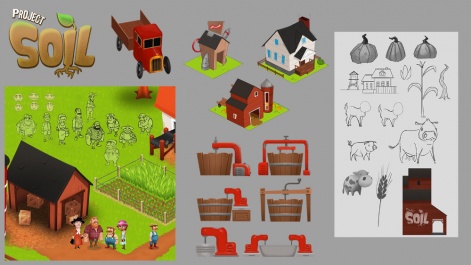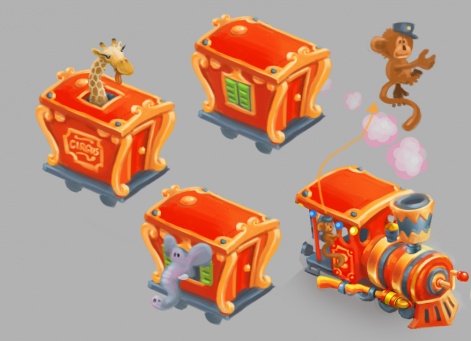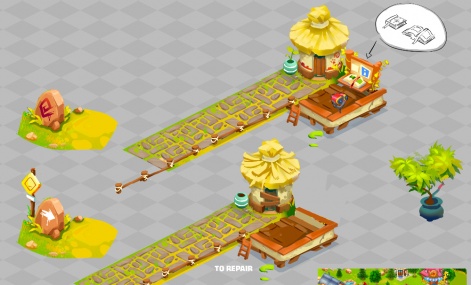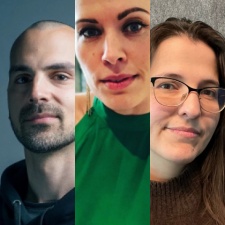Last week, we spoke with Supercell’s Stephan Demirdjian and Camilla Avellar, former Hay Day game lead and designer, respectively, and artist Sari Latvala on the first six years of the title – with a vastly malleable and unknown market, and before innovations such as touchscreen controls became normalised. Despite the shadow of Clash of Clans, which released only months after Hay Day, the title has enjoyed strong success with an enviable, consistent player base.
But the mobile games industry moves quickly. 2017 saw the true emergence of hypercasual, one of the most dynamic and disruptive genres in mobile, with a dramatic shift from the industry in response, and obviously 2020 brought about the most defining global calamity in recent years: COVID-19.
How did Hay Day maintain its popularity during these taxing times? Demirdjian, Avellar, and Latvala have the answers.
2018-2019
The rising tide of hypercasual, and its influence on the wider mobile industry
Stephan Demirdjian: I don’t know if this is a satisfactory answer – maybe it’s a very boring one – but the truth is, I don’t really remember ever comparing ourselves against the market. We were, of course, very aware of the developments and changes but taking, say, a competitive game and analysing it, seeing what we could draw from it? We never did this.

I mentioned the stability in our team, and the trust and psychological safety we had in each other. Besides wrestling with our own backlog, constantly revisiting Hay Day with community feedback and our own metrics, we never felt the need to study other titles in the market in such intensely detailed ways.
Sari Latvala: Honestly, I felt it was the other way around – some of the most popular games took a few of their best ideas from our game. We always had great, innovative ideas, so we didn’t feel the need to borrow from other titles.
Camilla Avellar: Hypercasual games are consumable and disposable – you’ll play for a week before moving onto the next one. This is completely antithetical to the Supercell way of making games, which we want people to play for decades, and in that sense, we didn’t look at the genre for possibilities or inspiration.
2020 – 2021
The pandemic years: changing how the world worked, and confronting Supercell’s burnout problem
Demirdjian: The initial pandemic weeks definitely affected us, especially in terms of work efficiency. However, what really helped us was having shifted our focus precisely at that time, towards more content, and thus we didn’t have to design massive new features remotely.
The designs that were still needed were done in smaller groups and subsequently discussed in bigger team Zoom meetings. In hindsight, I feel we were able to handle the pandemic days more or less in a sufficient manner.

Avellar: Yes, and since the team was already well-accustomed to working together, the transition wasn’t that hard. Communicating with colleagues always has a learning curve, but thankfully we had already gone through discovering each others’ communication styles before the pandemic.
Latvala: Hay Day’s team size has been fluid for a long time already, so we didn’t have any need for structural changes. We are able to balance the workload with planning ahead, a fluid team structure, and great external partners who help us with the content production.
Avellar: We can’t talk about 2021 burnout issues without touching on the pandemic situation. I don’t think anyone in the team would say there was no added stress in their lives. A lot of us have roots across the world, which compounds the issue: not being able to visit family and friends, feeling stuck in a country and culture which isn’t necessarily our own.
But in Hay Day, we had been talking about mental health and safety for years already, which helped us feel safe in taking a step back when necessary. Since then, the company has made great strides in employee well-being, with several benefits to address issues.
2022 onwards
Ensuring Hay Day’s appeal after a decade
Demirdjian: I think this is a general challenge that all live service games have to tackle. In Hay Day’s case, I would say that our past focus on strengthening the social bonds among players through our own Alliance system and various gameplay tied to it, has helped to create a habit of playing together.
So, the core appeal in my mind is that this is a world where nothing bad ever happens and you can find a wonderful community of amazing people to play together for years to come.
Avellar: There will always be the shiny new thing, the new hit game, and the new hit features. We can’t compete with those, nor do we want to. I think there will always be space for the chill experience, the pleasant game that feels like home and that you can come back to any time.

The Hay Day team, post-Demirdjian and Avellar, and removing all barriers to player engagement
Latvala: There is an initial plan for the next two years.
Avellar: One thing we learned over the years was that if we add new features to the game, players will want to engage with them. Seems obviously, but this is sometimes to the detriment of their playtime’s quality.
We had this idea that players can choose to engage with the features that excites them, but they really end up wanting to play every single feature, and this ‘obligation’ can make them bored with the game.
Currently, the game is in such a good position with the features it has, that we feel it’s the perfect time to take a step back and focus on making those, and in tandem the players’ experience, more fun.
Demirdjian: We felt that throughout 10 years of development, we added a great variety of different features for players of all levels to enjoy. And this creates a strong baseline to bolster hopefully all of them, with a big focus on adding additional content.
---
You can read part one of this interview, which detailed the creation of Hay Day in mobile gaming's nascent era, through this link.























